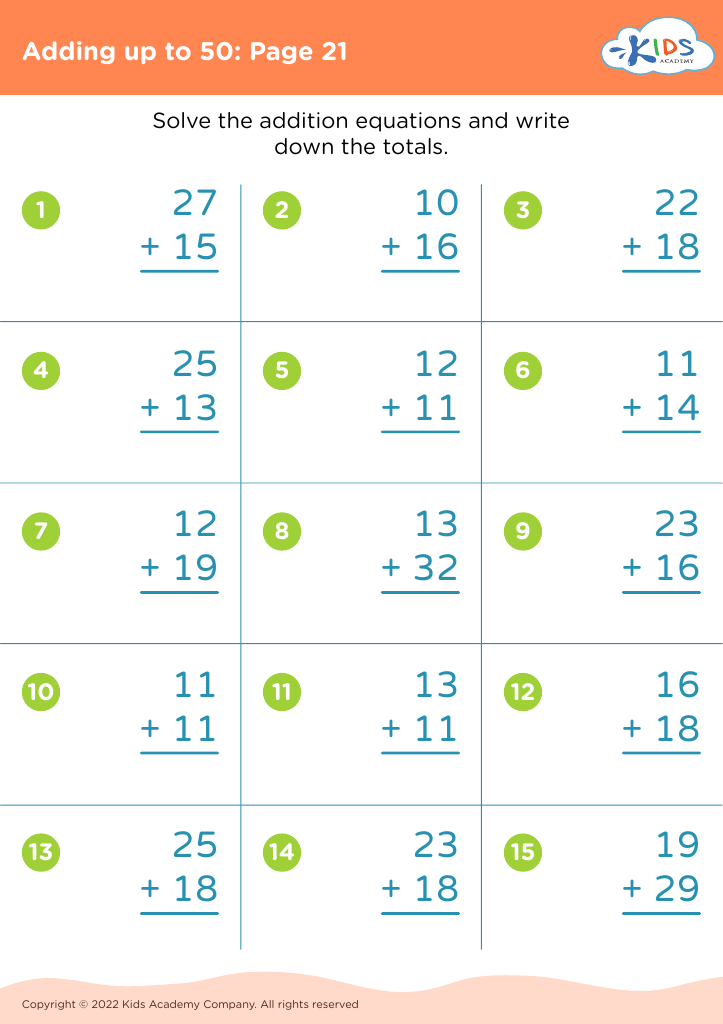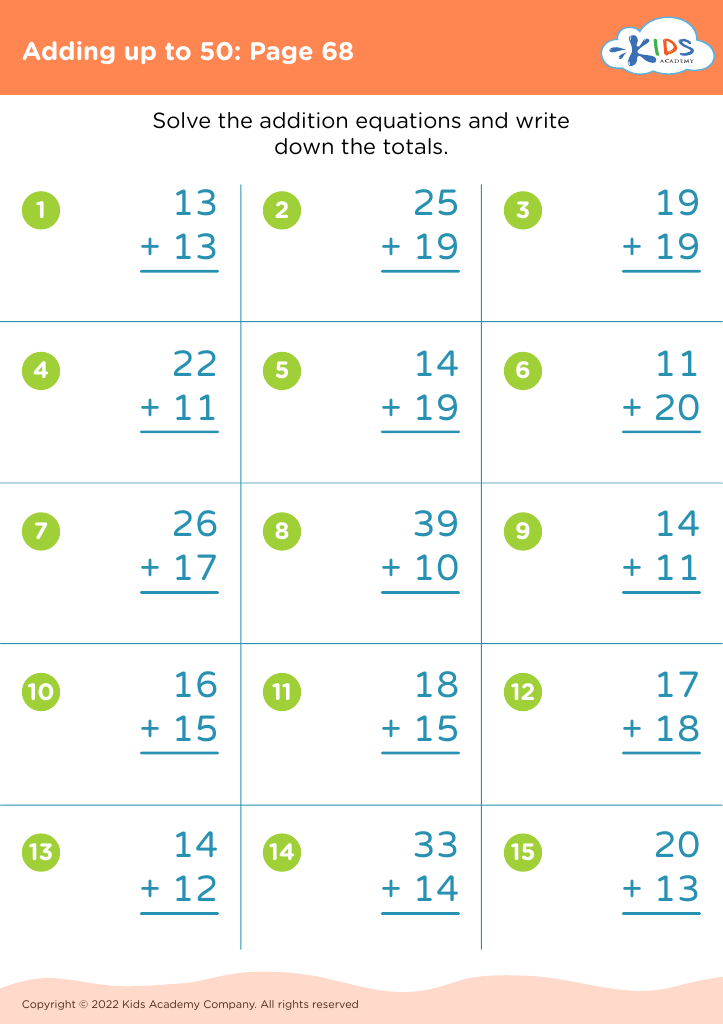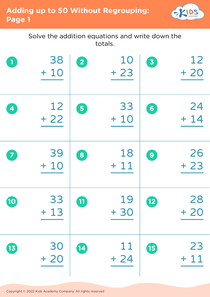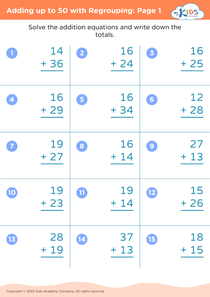Simplifying Fractions Adding up to 50 Misc Worksheets for Ages 5-7
4 filtered results
-
From - To
Discover our "Simplifying Fractions Adding up to 50 Misc Worksheets" crafted for ages 5-7! These engaging worksheets offer a fun way to build essential math skills in young learners. Each activity is designed to help children understand the basics of simplifying fractions while practicing addition up to 50. Our resources provide a balanced mix of challenges and fun to motivate kids and enhance their problem-solving abilities. These worksheets are perfect for classroom activities or additional practice at home, ensuring your child grasps and masters fundamental math concepts with confidence. Start exploring now for improved math proficiency!
Simplifying fractions and understanding basic arithmetic concepts, like adding to 50, are critical foundational skills for young learners aged 5-7. At this stage, children are developing their numeracy skills, which are essential for more advanced math in later years. By emphasizing activities like "Simplifying Fractions Adding up to 50 Misc," parents and teachers can help children build a strong mathematical foundation.
Firstly, simplifying fractions introduces children to the concept of equivalence, laying the groundwork for understanding proportional relationships and algebra. It helps them recognize that different-looking fractions can represent the same value, fostering flexibility in thinking and problem-solving.
Secondly, basic arithmetic skills, such as adding numbers up to 50, enhance number sense and fluency. These skills are pivotal for mental math and everyday calculations, building a young learner's confidence in handling more complex operations. Practicing these skills in a variety of miscellaneous (misc) ways—through games, puzzles, and hands-on activities—keeps learning engaging and dynamic, catering to different learning styles.
Overall, investing time and effort in these fundamental areas creates a solid mathematical competency, setting children on a path toward academic success and analytical thinking. It’s not just about passing tests; it's about nurturing a lifelong ability to comprehend and apply mathematical concepts across diverse situations.















